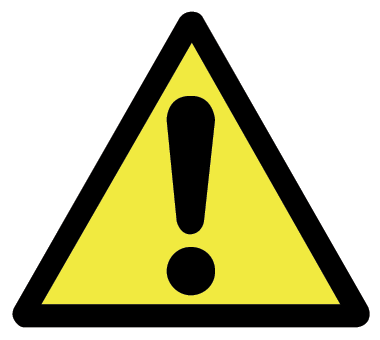
Hearing Protection
Don’t risk losing your hearing!
Why do I have to protect my hearing?
When you are exposed to loud noise it will cause damage the nerve endings in your inner ear. Prolonged exposure to loud noise will eventually destroy those nerve endings. As the number of nerve endings decrease, so does your hearing. There is no way to restore life to dead nerve endings; the damage is permanent.
The longer you are exposed to a loud noise, the more damaging it may be. In addition, the closer you are to the source of intense noise, the more damaging it will be.
It follows therefore that we all should take great care when:
-
We use i-pods or any personal music systems
-
We attend music concerts
-
Work in very noisy environments
It is very important to establish if the music or noise is at a level that can cause hearing loss, and if so, to take precautionary steps.


How can I tell if a noise is dangerous?
People differ in their sensitivity to noise. As a general rule, noise may damage your hearing if you are at arm’s length and have to shout to make yourself heard. If noise is hurting your ears, your ears may ring or you may have difficulty hearing for several hours after exposure to the noise. Noise is characterized by intensity (measured in decibels), pitch (measured in hertz or kilohertz) and duration (measured in time).
The strength of a sound is determined by the pressure of the sound waves and is expressed in decibels: dB(A). dB(A) measurements are corrected to the sensitivity of the human ear. The quietest audible sound is 0dB(A). The threshold of pain begins at 120 dB(A).
Here are some typical decibel (dBA) levels of everyday situations:
-
Normal conversation: 60-65dB
-
A busy street: 75-85dB
-
Lawn mower or heavy traffic: 85dB
-
Forklift truck: 90dB
-
Hand drill: 98dB
-
Heavy lorry about seven metres away: 95-100dB
-
Motorbikes: 100dB
-
Cinema: some films regularly top 100dB during big action scenes
-
Disco or nightclub or car horn: 110dB
-
MP3 player on loud: 112dB
-
Chainsaw: 115-120dB
-
Rock concert or ambulance siren: 120dB
Experts agree that continued exposure to noise at or above 85dB over time can cause hearing loss.
Without noise measuring equipment it is impossible to tell what noise level you are being exposed to. So, a handy rule of thumb is:
If you can’t talk to someone two metres away without shouting, the noise level could be damaging.
Safe Exposure Times to Noise
Each time the sound level is increased by 3 dB, the intensity of that sound is doubled (i.e. it is twice as loud). Each time you double the sound intensity, the safe listening time is halved. This means that the louder the sound is, the sooner you are susceptible to permanent hearing damage.the sound is, the sooner the chance of permanent hearing damage.


How do I protect my hearing?
It is important to be knowledgeable of the dangers of noise, to be sensible about exposure times and to consider ear defenders.
There is a wide range of ear defenders available. Custom-made hearing protectors give the best comfort and isolation for extended usage.
Apart from supplying digital hearing aids, Farnham Hearing offers a range of hearing protection products for all kinds of applications, ranging from motor racing to classical music performance.
We also offer specialist musicians hearing protection with a number of features that create a great experience for the wearer, allowing the musician to listen and perform in comfort and with impeccable clarity.
We are able to discuss the options available and what is most suited to your needs.
Noise Protection
We offer custom made ear plugs for:
-
Industrial noise
-
Shooting
-
Recreational noise like music and concerts and gigs
-
Musicians wishing to still hear the music in full but without the risk of damage to their hearing
-
Sleeping (when there is a snoring partner or other noise disturbances)
Read more about the risk of noise damage and when to protect your hearing here:
%20(22).png)
